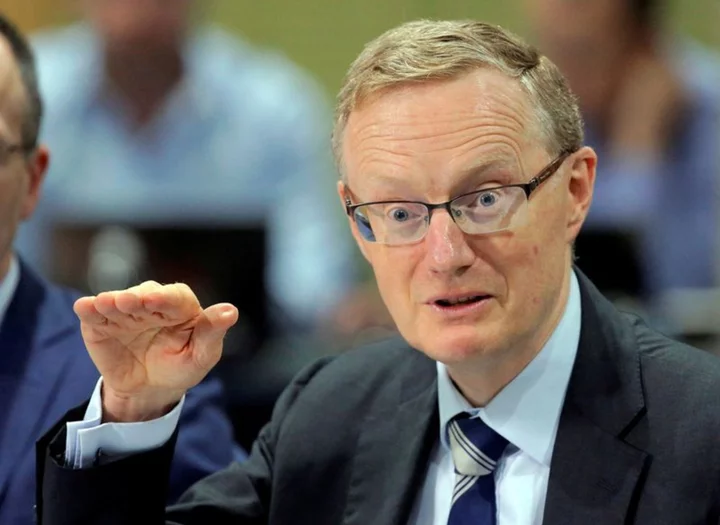Pressure is mounting on the chief of Spain’s football association after the country’s World Cup champion Women’s team said they’d refuse to play another game while he remained in the post.
The 23 players made the announcement late Friday after Luis Rubiales earlier defiantly announced he would not leave his position as head of the country’s Royal Football Association over his behavior at the World Cup final this month in Australia, when he celebrated Spain’s victory by kissing star player Jennifer Hermoso on the lips and made an obscene gesture of grabbing his crotch after a Spanish goal. The government has called for him to go, but has little power to actually remove him.
Rubiales Friday argued that he is the victim of a public lynching and that he did nothing wrong because the kiss was consensual. After Rubiales’ press conference, when he said five times consecutively that he would not resign, Hermoso, issued a dramatic statement disputing his claims that she had consented and said she was a victim of “an impulse-driven sexist.”
Adding to pressure on Rubiales, Spain’s sports oversight body, the Sports Council, announced it was sending a complaint to the country’s sports court to request Rubiales’s removal, and asked the judges to hold an extraordinary meeting on Aug. 28 to consider the matter. If the court accepts the proceedings, the Council has the power to temporarily suspend Rubiales until a verdict lands.
Spain’s Royal Football Association is so far standing by Rubiales and came to his defense again on Friday, threatening legal action against anyone who questions his honor. The association directly challenged Hermoso’s account of what took place. The RFEF, as it’s known, released 4 photos from the celebration that appear to show Hermoso lifting Rubiales off the ground as they hugged on the pitch after the victory. Hermoso had said she never sought to lift Rubiales, while Rubiales had cited the embrace as part of his consent defense. The statement didn’t directly address Hermoso’s statement denying consent.
Rubiales has been criticized for both the kiss and because during the celebration of a goal in the directors box, he grabbed his crotch — an obscene gesture that in Spain seeks to demonstrate toughness. He did this while standing next to Spain’s Queen Letizia and one of her children.
Rubiales has also sought to tap into Spain’s culture wars to build his defense, blaming “fake feminism” for the uproar since the Aug. 20 incidents, which were broadcast live around the world. He said he would take Equality Minister Irene Montero and Labour Minister Yolanda Diaz to court for their criticism of him. All of the country’s largest political parties have so far shunned Rubiales and demanded he leave.
Political Implications
The controversy comes during a period of political deadlock in Spain following an inconclusive national election on July 28. Prime Minister Pedro Sanchez has retained the job in a caretaker capacity as both he and conservative opposition leader Alberto Nunez Feijoo seek ways to find enough support to win an investiture vote.
Sanchez has repeatedly sought to portray his government as being on the side of women since he first came to power in 2018, but some of his gender and equality laws have been deeply divisive and opposition to them has been used as rallying calls by opposition parties. Most notable was a law sponsored by Montero known as the “only yes means yes” law that sought to create tighter sentences for sex crimes, but had the unintended consequence of leading to the release of criminals who had their sentences revised under the new definitions.
Several of Spain’s largest professional clubs issued statements Friday criticizing Rubiales, including Real Madrid, Europe’s most successful team, which said it fully supports the government’s decision to seek his suspension. Club Atletico Osasuna called his behaviour “coarse, rude and chauvinist” while Athletic Club de Bilbao announced that its chairman will step down from the board of the FA.
Although professional clubs only have a small representation within the FA, their stance carries weight. In Spain, like in other countries, the FA is the sport’s governing body, oversees the national team and works with regional federations, but the two top leagues are controlled by a separate, club-owned entity called La Liga.
In an interview with newspaper El Pais Saturday, Spanish Culture and Sports Minister Miquel Iceta said that as far as the government is concerned, this is the end for Rubiales.
“It can’t go on. It cannot be that after an unacceptable event there isn’t any sort of reaction from the president or the assembly of the football federation,” Iceta said in the interview, though he did add that the final decision to remove Rubiales depends on legal authorities and the government has limited space to act.









